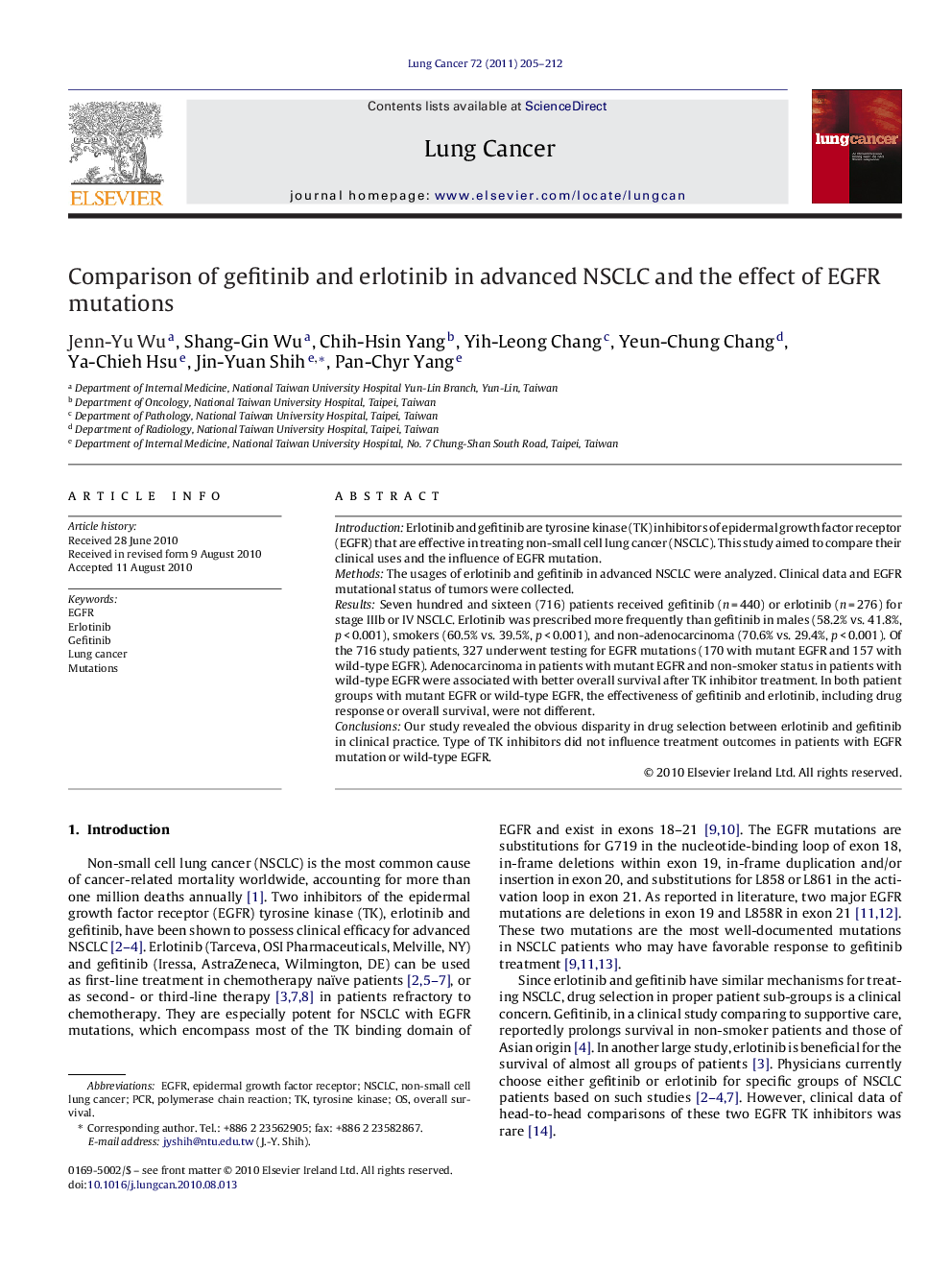| Article ID | Journal | Published Year | Pages | File Type |
|---|---|---|---|---|
| 2141901 | Lung Cancer | 2011 | 8 Pages |
IntroductionErlotinib and gefitinib are tyrosine kinase (TK) inhibitors of epidermal growth factor receptor (EGFR) that are effective in treating non-small cell lung cancer (NSCLC). This study aimed to compare their clinical uses and the influence of EGFR mutation.MethodsThe usages of erlotinib and gefitinib in advanced NSCLC were analyzed. Clinical data and EGFR mutational status of tumors were collected.ResultsSeven hundred and sixteen (716) patients received gefitinib (n = 440) or erlotinib (n = 276) for stage IIIb or IV NSCLC. Erlotinib was prescribed more frequently than gefitinib in males (58.2% vs. 41.8%, p < 0.001), smokers (60.5% vs. 39.5%, p < 0.001), and non-adenocarcinoma (70.6% vs. 29.4%, p < 0.001). Of the 716 study patients, 327 underwent testing for EGFR mutations (170 with mutant EGFR and 157 with wild-type EGFR). Adenocarcinoma in patients with mutant EGFR and non-smoker status in patients with wild-type EGFR were associated with better overall survival after TK inhibitor treatment. In both patient groups with mutant EGFR or wild-type EGFR, the effectiveness of gefitinib and erlotinib, including drug response or overall survival, were not different.ConclusionsOur study revealed the obvious disparity in drug selection between erlotinib and gefitinib in clinical practice. Type of TK inhibitors did not influence treatment outcomes in patients with EGFR mutation or wild-type EGFR.
